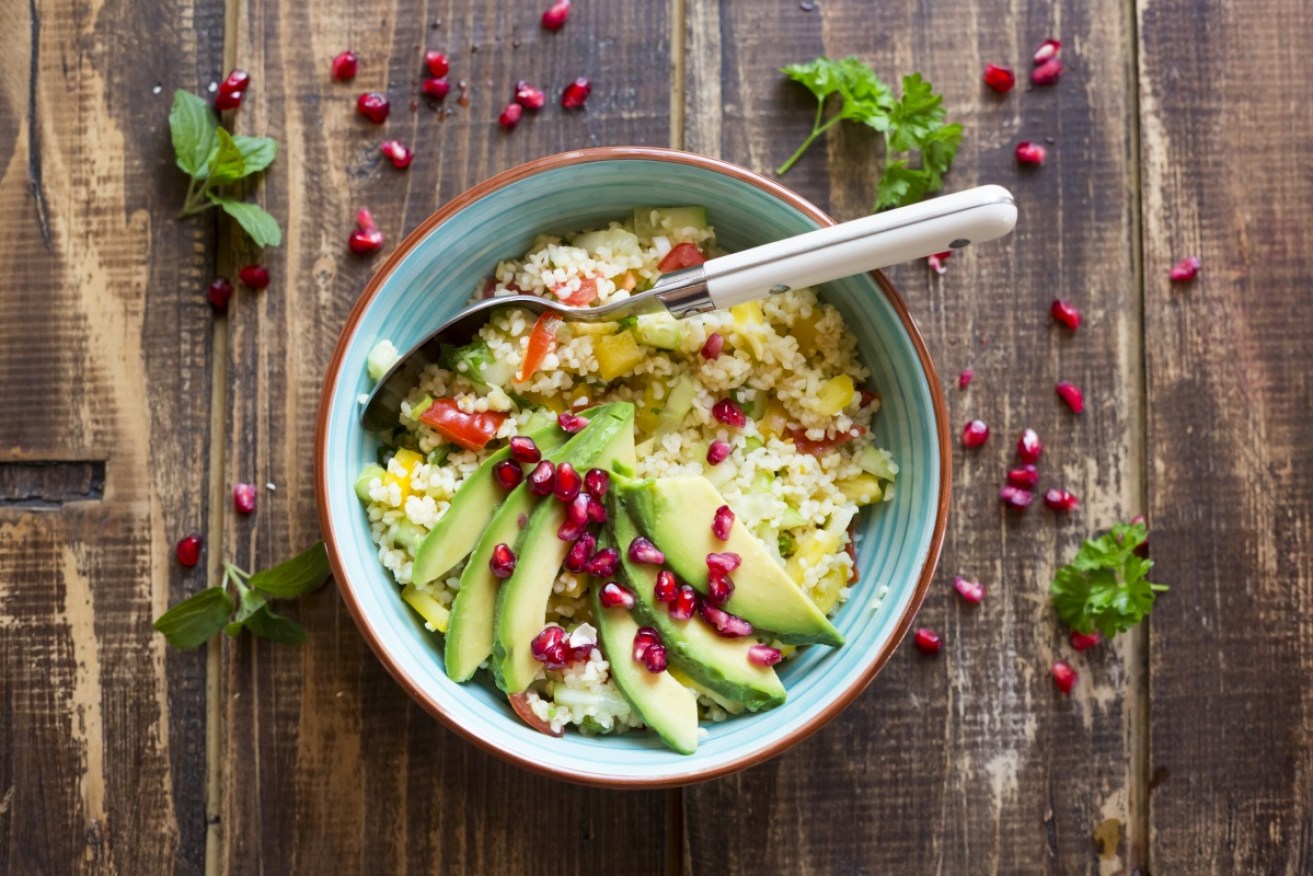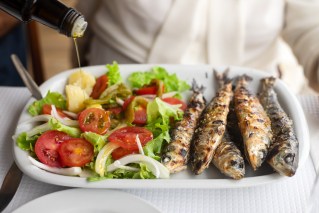Going vegan: how giving up animal products changed my life


This salad bowl is an example of vegan food that's tasty and satisfies they eyes and the stomach. Photo: Getty
“Well that’s going to make family meals difficult,” was my father’s first reaction when he learned I’d become a vegetarian. Unfortunately, he misheard me – I said I had become a vegan.
Last year my partner and I began looking into the benefits of a plant-based diet and found that it spoke to many of the things we care about: health, animals and the environment.
We’ve been delighted to discover how easy it is to meet daily nutritional requirements through plant-based foods.
For example, in the film Forks Over Knives, Dr Colin T. Campbell (author of The China Study) said that only 8 to 10 per cent of your daily calories need to come from protein.
Protein can be found in soy products, beans, seeds, nuts and green vegetables like broccoli, cabbage and asparagus.
As a result, it hasn’t felt difficult letting go of animal products. There have been so many other options to explore.
Salads were already a staple in our diet, but cheese, red meat, chicken or fish were often added to them.
So we started looking into alternatives, such as: tofu, quinoa, red rice, brown rice, potato, black rice, avocado, pumpkin and legumes.
Then for breakfast we tried coconut yoghurt instead of a dairy-based one and oat milk instead of cow’s milk in our tea.
Why I feel better
During our plant-lined travels, we unearthed masses of information, which proved to be invaluable. In the preface to his bestselling book How Not to Die, Dr Michael Greger explains that “with the democratisation of information (through the internet), doctors no longer hold a monopoly as gatekeepers of knowledge about health.”
Meantime resources like Dr Greger’s nutritionfacts.org, GreenMedInfo, The Rich Roll Podcast and mindbodygreen have become our best buddies.
Dr Greger’s work continues to blow my nut-based mind. It is a steady stream of scientific evidence proving how a whole food, plant-based diet can prevent and reverse disease.

Energy, recovery time and weight all improve thanks to a vegan diet. Photo: Getty
In one study, “within a matter of weeks, participants on the plant-based diet experienced improvements in blood pressure, cholesterol and insulin levels, insulin resistance, and C-reactive protein levels. Vegans also may had fewer nutrient deficiencies than average omnivores”.
Dr Greger insists that, “I don’t advocate for a vegetarian diet or a vegan diet. I advocate for an evidence-based diet”.
The benefits of eating like this are hard to ignore. We have more energy and we have lost weight. My skin cleared up and we both recover quicker after exercise.
Our stool is of a healthier consistency and we sleep well. We rarely ever get sick and when my partner had surgery, he healed quickly.
Why my dad changed his mind
Turning myself into a walking, talking, organic vegetable garden hasn’t been cheap, but it certainly is no more expensive than eating organic or free-range animal products.

Nuts are a great alternative source of protein. Photo: Getty
Eating plant-based hasn’t been a fascist regime, but a creative adventure, and I’m proud to announce that the person I most frequently discuss it with is my dad.
When we recently dined together, I ordered food that I identified as being plant-based – praying that beef stock wouldn’t be used to cook them – and dad looked the waiter in the eye and declared “Maddie is a vegan”.
He did so without a hint of embarrassment or judgement on my behalf.
Instead, he met the needs of his beloved daughter on so many more levels than a plate.








